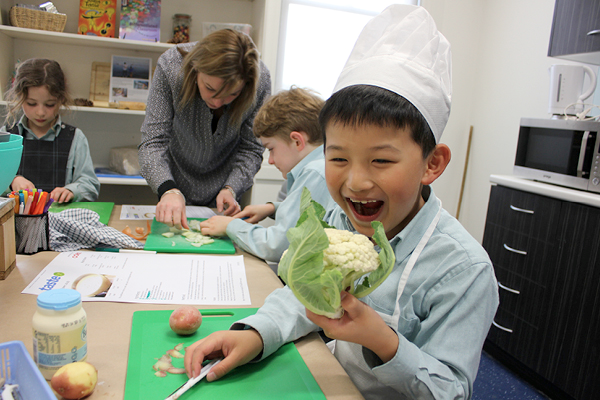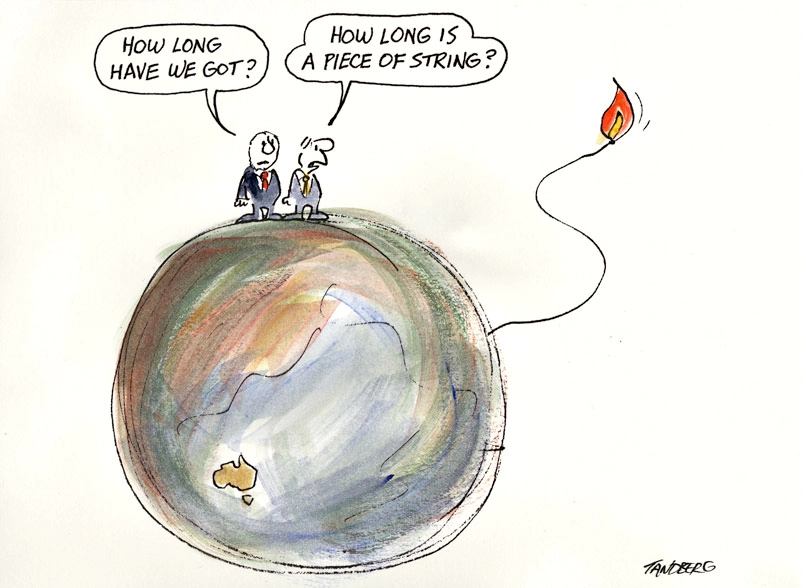Sustainability in the Classroom
Teaching students about sustainability has never been more important. As our awareness of the plight of the world around us increases, it has become increasingly vital that we educate our students on the best ways to live sustainably and ensure that not only will their generation enjoy a high quality of life on this planet, but future generations can too.
And it can all start right in the classroom!
Learning about and incorporating sustainability education can be empowering, inspiring, engaging and fun for students; ‘real-life’ learning about the world around them can be incorporated into the curriculum across the board. Any school can do it too, whether it takes place inside or outside the classroom, and it is not just limited to activities that ‘get the littlies outside’ – there are numerous ways to get students right up to VCE involved in sustainable learning.
For Primary school levels, getting students outside and learning about the world they live in can be a fun and engaging way to educate about the environment and sustainability. Every school is in an ecosystem, with plants and animals surviving right there in the playground! You can also bring animals into your school, via an incursion. Getting involved in planting projects can be a great way to help improve that ecosystem. Kitchen Gardens are also a wonderful way to introduce students to the idea that fruits, veggies and herbs don’t just come from the supermarket, and shows them the full cycle of the plants whilst being a great opportunity to discuss sustainable agriculture. Alternatively, planting a Native Garden is a great way to restore some of the playground ecosystem back to its original, beautiful state. A bit of classroom research into the native flora of your area, some planning and a trip to the local garden centre can see your school attract native insects, birds, frogs and lizards to the habitat they so desperately need in a time where the urban sprawl is taking over their former homes.
‘Reduce, Reuse, Recycle’ is a slogan that has echoed around classrooms for decades now, and for good reason. With the war on plastic in full swing nowadays, and our increased awareness of the damage plastics can cause, it is more important than ever to help students understand the importance of recycling – and it can be fun too!
For younger students, a classroom ‘recycling centre’ can be set up, illustrating the ways in which we separate waste and awards can even be given to classes recycling the most paper, plastic and glass. Make it a fun little competition to find this week’s ‘Eco-Warriors’ and students will get right into the activity and be rewarded for it! Discussing and implementing good recycling practises is a fantastic way to get students and teachers alike into a more eco-friendly frame of mind, but it’s not just limited to the younger students.
When it comes to secondary students, open discussions about eco-friendly practices are a highly beneficial way to engage young minds and get them thinking outside the box. Classroom debates across a wide range of topics can test their English skills as they critically analyse a range of relevant topics, from coal use to renewables and even current affairs – the current issue of feral horses in the highlands should spark some great debates! Science students can conduct an ‘energy audit’, whether it be on themselves, their class or the whole school! Find out where energy is being used and where it can be conserved – sometimes just opening the blinds can make a big difference to energy usage!
Online resources such as CoolAustralia.org are great for providing quality content on sustainability as well. A huge variety of educational videos can be found here, on a wide range of topics and sorted into year levels. CoolAustralia.org is an absolute goldmine of curriculum-based, engaging and informative videos that will grab the attention of students and teachers alike.
We see the headlines. We know the deal. It’s time for change, and fostering an interest in sustainable living amongst students is vital. If we can start right in the classroom, we can work together to help create the better humans of tomorrow!




